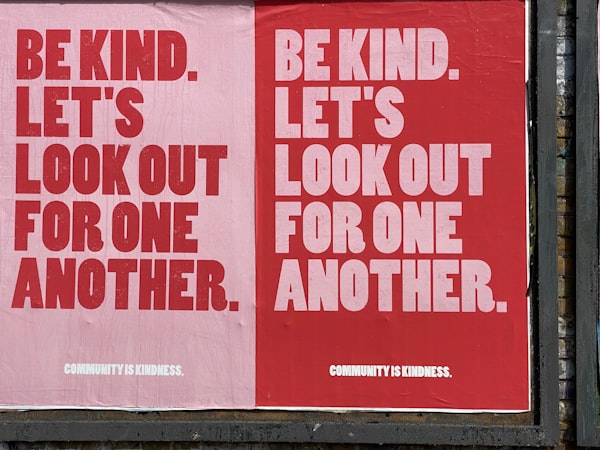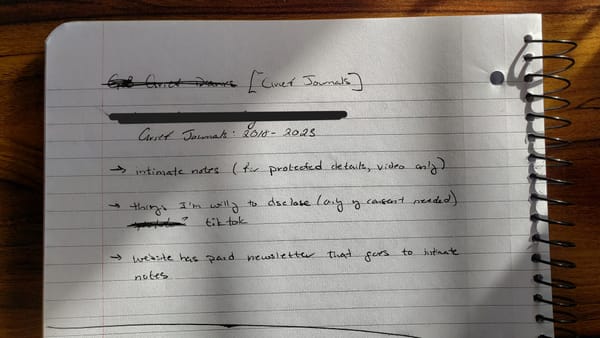We can't keep running away from conflict
I want to share with you three lessons I learned from facilitating my course. TLDR: oppression results in conflict avoidance and a limited capacity to dream.

Last month we wrapped up the BETA test of Cultivating a Loving Practice a program for queer and trans people of color who wanted to nurture their relationships with intention.
Today, I want to share with you three lessons I learned from facilitating this course. TLDR: oppression results in conflict avoidance and a limited capacity to dream.
Even when we believe liberation is possible, we aren't clear on what it takes to get there
During our second class session, participants moved through radical imagination exercises where they were asked to describe what liberation looks like for their communities and what would be required of them.
As expected, the possibility of what we could dream up can be summarized as "everyone has what they need to thrive". What we couldn't get clear on was what was expected of us to make that a reality. And participants started to feel defeated.
This is because capitalism (and all the other -isms) create a scarcity of imagination that limits what we can even begin to see as possible, especially when it comes to our individual and collective power.
The key to creating satisfying relationships is developing a tolerance for conflict
One of the core pillars of a loving practice is asking for what you need. Shortly after teaching the related lesson, I realized I was asking participants to do something (have hard conversations) without properly preparing them to do so.
Every participant talked about having a family member they needed to have a heart-to-heart with, but the thought of doing so was too much to even begin thinking through.
So instead, we chose to focus on our relationships with ourselves - which is still deeply important work.
When we fear conflict, we revert to hyper-independence
The fear of having those hard conversations meant we focused on self-care and self-love. We developed intentional practices around meditation, morning pages, nature walks, and our hobbies.
And while these efforts helped reduce people-pleasing and over-scheduling, they're still solitary activities that don't bring others into our healing - which was my goal for the program.
Fortunately, seeds were planted that helped strengthen community ties, but those were more the result of being in such an intimate, supportive community and less about the course material.
Teaching Cultivating a Loving Practice has emphasized the importance of being able to navigate conflict in relationships. It's easy to build community and do social change work when you're getting along with others. But our collective pursuit of liberation isn't possible if we're unable to sustain relationships through conflict and tension.
Now that we're at the start of a new year, I encourage you to reflect on your relationship with conflict and if there are areas of your life that would benefit from a higher conflict tolerance.
Thank you for reading,
✨ Kiana





